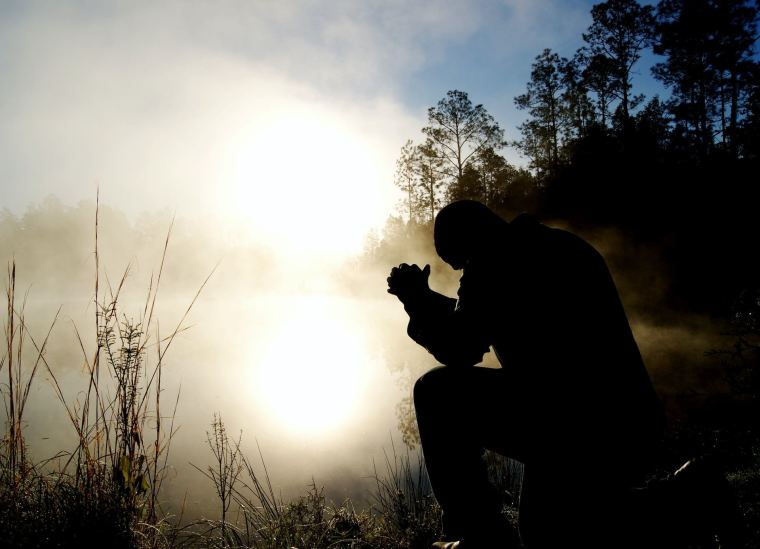
I realise and acknowledge that answered prayers can be a sensitive topic. This is in no way the absolute way of understanding this or how God works. I pray and hope that using the 5 Ws and H framework to offer different perspectives will be a helpful way to consider situations we face.
Who is at the centre of our prayers?
Prayer is communicating with God.
Too often, we think of prayer as a way of getting help. While acknowledging our dependence on God and remembering his power in difficult times is commendable, he is not only our emergency call.
God is worth infinitely more than that.
Is there more ‘I’ or ‘You’ in your talk with God?
Are you talking more or listening to God speak in silence more?
What do you pray for?
Friends, families, work, the world and ourselves.
Most of us pray for things to go well.
We pray for good relationships, jobs, healing, peace, wisdom, etc.
We want our lives and plans to go smoothly. We prefer to attain success easily. We also do not want too many bumps along the road because others will see us as failures.
Occasionally we ask God to grow our faith in him and to be his faithful witness.
But what does God want us to be praying for?
Where are we waiting for God?
God does not always answer our prayers immediately. Waiting is not easy.
I think of Abraham and Sarah, who were childless for many years despite God’s promise to them. They questioned this reality as they waited and tried to do things their way.
But Abraham kept trusting in God amid his uncertainty.
We are not told the everyday details of how Abraham faithfully waited all those years. But we can assume he was in constant communication with God. He also continued living for his future as his possessions grew. Abraham loved people through hospitality and peace-making, resulting in a high standing in his community.
Are we waiting on God from a place of faithfulness or self-sufficiency, standstill or growth?
When has God not answered our prayers?
I am not sure if we will always know.
We put God in a box when we expect him to answer our prayers in the coming days or weeks.
Just like the Apostle Paul pleaded with God three times to remove the torment. God replied. God reminded Paul of his grace and power.
God does not always leave us in the dark by ourselves. He is with us.
Perhaps God's complete answer to our prayers will only occur when the new heaven and earth come. At that time, everything and everyone will be fully restored.
What if the way God replies to us causes us to pray another way?
Why are we focussed on the results of an answered prayer?
We somehow define the success of our prayers by how closely the answers matched our requests.
And if they did not, we look inwards and wonder if this indicates our lack of faith and righteousness, poor prayer life, or our relationship with God was not strong enough.
We nullify grace and minimise God’s goodness when we view our answered prayers this way. Our perfect God who loves us dearly and wants to give us good gifts.
When we are fixated on the answer we want, we lose sight of what God wants us to learn and grow along the way.
Sometimes I pray to God longing to stand firm in my faith. What comes next is usually a difficult season. I did not see this as an answer to my prayer. I naively expected a season without challenges, with the energy to read the Bible, pray, and serve others well.
I realise now that the difficult season was God’s answer for me to grow so that I could stand even firmer in my faith in God.
Sometimes the circumstance we complain about is the way to receive the byproduct we prayed for.
What if he has been giving you gifts all along? And you couldn’t acknowledge and receive it because of your preconceived expectations?
How do we measure if a prayer has been answered?
Recently I’ve been contemplating the meaning of James chapter 5, verses 13 to 16, as I consider all the sickness that prevails despite prayer. Why does the sick person get healed in the Bible and not the people I know?
I then realised health and wellness are multi-dimensional; physical is only one of its dimensions, and so is spiritual.
And though we tend to pray for immediate physical health needs, God is more concerned about our spiritual wellness. Jesus is the perfect reflection of this in the way he interacted with sick people. He forgives sin and acknowledges people’s faith first.
Perhaps healing is received in the spiritual when a person has true life away from eternal darkness.
The 5 Ws we explored remove the focus of an answered prayer from ourselves. It turns the focus back on God.
The God who designed prayer.
The God who wants a personal relationship with us.
How will things change if we shift the focus from the answer to God and his answer?

Stephanie enjoys simple living, admiring nature’s beauty and intricacy, and playing the piano. She is particularly passionate about empowering the vulnerable. Writing is her way of processing thoughts and feelings to understand herself, God and the world in a deeper and more meaningful way.